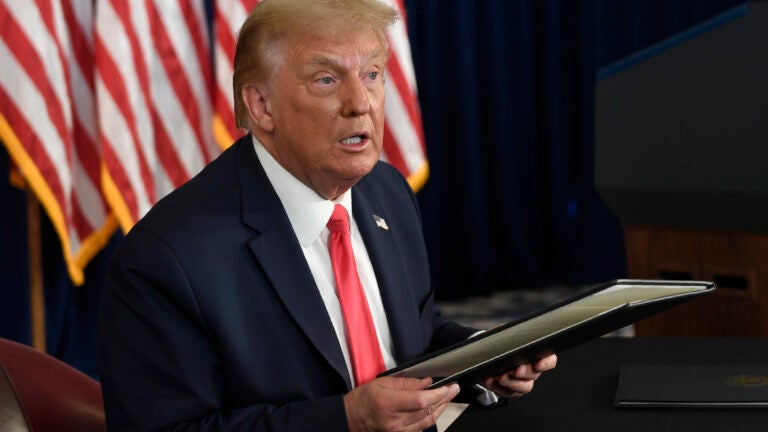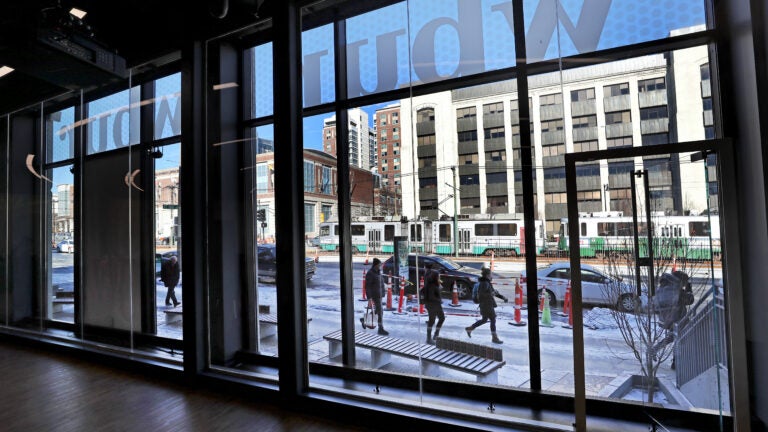Sidestepping Congress, Trump signs executive measures for pandemic relief
Trump walked away from the lectern after just a few questions from reporters about his claim that he had the ability to circumvent Congress.

President Donald Trump took executive action Saturday to circumvent Congress and try to extend an array of federal pandemic relief, resorting to a legally dubious set of edicts whose impact was unclear, as negotiations over an economic recovery package appeared on the brink of collapse.
It was not clear what authority Trump had to act on his own on the measures or what immediate effect, if any, they would have, given that Congress controls federal spending. But his decision to sign the measures — billed as a federal eviction ban, a payroll tax suspension, relief for student borrowers and $400 a week for the unemployed — reflected the failure of two weeks of talks between White House officials and top congressional Democrats to strike a deal on a broad relief plan as crucial benefits have expired with no resolution in sight.
Trump’s move also illustrated the heightened concern of a president staring down reelection in the middle of a historic recession and a pandemic, determined to show voters that he was doing something to address the crises. But despite Trump’s assertions Saturday that his actions “will take care of this entire situation,” the orders also leave a number of critical bipartisan funding proposals unaddressed, including providing assistance to small businesses, billions of dollars to schools before the new school year, aid to states and cities, and a second round of $1,200 stimulus checks to Americans.
Trump accused the Democrats of holding up negotiations with demands for provisions that appeared to have little to do with the pandemic, although he made little mention of comparable items in the $1 trillion proposal Republicans unveiled last month.
Democrats have refused to agree to that plan, pressing instead for a far more expansive economic relief package, at least twice as large, that would provide billions more for states and cities and food aid, and revive the lapsed $600-per-week enhanced federal jobless aid payments.
It was unclear whether the aid would even materialize if lawsuits are filed challenging their legality. Trump walked away from the lectern after just a few questions from reporters about his claim that he had the ability to circumvent Congress.
Get Boston.com's browser alerts:
Enable breaking news notifications straight to your internet browser.








Conversation
This discussion has ended. Please join elsewhere on Boston.com